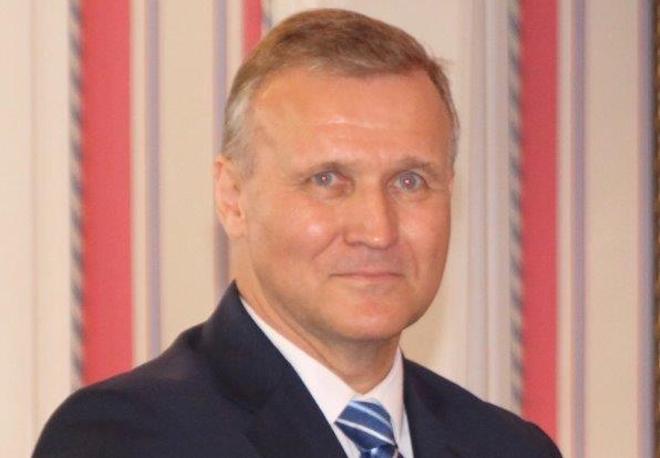Millions had already lost their lives in both Nazi Germany and Stalinist Russia long before the first round of World War II was fired. A startling pattern of behavior was emerging in the shape of purges and ethnic cleansings (the Holocaust and Holodomor), deportations, labor camps and concentration camps, extrajudicial killings and imprisonments. Before long, both Nazi Germany and the Soviet Union occupied parts of Poland. Indeed, in September 1939, The New York Times, in an editorial titled “The Russian Betrayal,” concluded that ideologically the Nazis and Soviets were not that far apart and depicted Hitlerism as brown communism and Stalinism as red fascism.
The MRP is considered one of the main triggers of World War II. It confirmed that neither the Nazis nor the Soviets could resist the expansionist efforts of the other, and it demoted smaller nations to the status of pawns in the grand designs of Europe's two totalitarian powers.
Eighty years later, Russia continues to uphold the narrative of the MRP as a measure of the last resort that saved lives and should be judged in the real political and historical context of pre-war period. MRP is presented as an inevitability that requires no justification or excuse for the injustice it inflicted upon Eastern Europe. …
Estonia is one of the countries significantly affected by the MRP. Before WWII, relations between the Republic of Estonia and the Soviet Russia were based on the Tartu Peace Treaty of 1920, where Russia recognized de jure the independence of Estonia and renounced “forever the sovereignty that Russia had over the people and land of Estonia”.
But after the occupation of Poland, the Soviet Union focused on the Baltic States. Estonia was urged to sign a so-called “mutual assistance pact,” allowing for the placement of Soviet military bases on its territory. According to the Soviets, Estonia's policy of neutrality endangered the security of the USSR, and the conditions of the 1920 Peace Treaty no longer satisfied Russians.
Russia insisted that its interests be taken into account and threatened Estonia with war. The pact was eventually signed. The Red Army crossed the border in October 1939 and occupied Estonia in June 1940. Widely seen as an illegitimate takeover, the U.S. announced promptly that it did not recognize the forceful changes that had taken place in the Baltic States, marking the beginning of a policy of non-recognition by Western countries.
Despite its neutrality, Estonia was occupied in turn by both Nazi Germany and Soviet Russia. The “liberation” of Estonia by the Red Army in September 1944 led to the creation of numerous armed resistance groups known collectively as “forest brothers,” massive deportations to the Gulag prison camps in Siberia, and a wave of boat refugees to the West.
On the 40th anniversary of the MRP in 1979, amidst an occupation, forty-five Baltic citizens sent a public letter, The Baltic Appeal, to world leaders, demanding public disclosure of the pact and its secret protocols, its annulment ab initio, and restoration of the independence of the Baltic States. Five Russian democrats, including Nobel Prize Laureate Andrei Sakharov, also signed the appeal. They acknowledged that the annexation of the Baltic States by the Soviet Union took place “in disregard of the wishes of the people of these lands”. The appeal constituted the basis for the European Parliament's resolution of January 13, 1983 in support of its demands.
On the 80th anniversary of the MRP, or Black Ribbon Day, Canadian political parties clearly expressed their stance on it. On behalf of the Government of Canada, Prime Minister Trudeau called on “all Canadians to honor the victims and survivors of Communism and Nazism, and of all totalitarian and authoritarian regimes, past and present.”
After fifty-five years, on 31 August 1994, Russian Federation troops finally left Estonia in accordance with the July Accords signed between Estonian President Lennart Meri and Boris Yeltsin a month earlier. For Estonia, the agreement was an historic achievement.
After the restoration of independence, the Baltic States have been successful in developing their economy and integrating with the rest of the free world. Joining NATO and the EU were critical milestones, turning away from the legacy of the Cold War, and celebrating the freedom of choice. Membership in these organizations shows the commitment of Baltic peoples to democratic principles.
Bill Clinton, President of the US at the time of the withdrawal, said in his address: “I've been very, very pleased to watch Estonia become part of and leading a new wave of integration and cooperation and prosperity.”
Today, Russia accuses the West of revising international law and of rewriting the history of WWII. At the same time, it promotes a neo-Soviet doctrine that attempts to rehabilitate dictator Josef Stalin and exonerate Moscow from any guilt for the historic injustices it has committed. The return to Soviet-era deceptions and half-truths, like the frantic denial of the occupation of the Baltic States, serves this purpose. Russia’s military intervention and occupation of parts of Moldova, Georgia and Ukraine also shows that the spirit of the MRP is still alive. Russia seems to live under its own historical spell, dubbing those who disagree with it as ungrateful, falsifiers of history, Russophobes or Nazis.
Reassessing one’s own history is not easy but it is necessary to rid the shadows of the past. It is a moral choice based on an admission of what is right and what is wrong. Enn Soosaar, the Estonian publicist, wrote of Russia that if “the largest nation in Europe would have been able to publicly dismiss the violence, lies, and inferences that had crippled Russia's history under Czarist and Soviet rule, [it] would have rid itself of much of the current inferiority complex and could have begun a new page.”
An honest attempt to reconcile history is the only way to free Moscow from the spell it has cast on itself.
Toomas Lukk, Ambassador, Republic of Estonia.




